On the one hand, it solves the shortage of teachers here, on the other hand, it contributes to creating fairness for students in remote and disadvantaged areas to study with a high-quality workforce. However, there are still concerns about the feasibility of this proposal and it is believed that there needs to be an effective and practical way to do it.
Providing quality human resources for schools in remote areas
Recently, recruiting teachers in some remote areas of Ca Mau province has encountered many difficulties. The proposal to specially recruit excellent graduate students to work in difficult areas is receiving attention from many schools. Ms. Pham Thi Quyen - Principal of Vien An Primary School 2 (Dat Mui, Ca Mau) said that in recent years, the school has always lacked teachers, especially in the subjects: English, Information Technology, Music, Fine Arts...
However, recruitment is difficult because there are not many policies to treat new teachers after graduation. Few teachers register for the entrance exam to work at the school, but many teachers request to transfer jobs. "I think that the proposal to specially select excellent graduate teachers to work in disadvantaged areas is a solution to create favorable conditions to supplement the missing staff in schools in disadvantaged areas. The selection process will be faster than the entrance exam, thereby helping localities to recruit teachers in time to meet teaching needs," Ms. Quyen commented.
Sharing the same view, Mr. Tran Phi Hung - Principal of Tam Giang Tay Primary School 1 (Tan An, Ca Mau) said that the special selection of excellent graduate pedagogical students to work in disadvantaged areas instead of taking exams is a good idea, in line with the actual situation of teacher recruitment needs in schools in disadvantaged areas. This not only creates favorable conditions for newly graduated pedagogical students, but also creates favorable conditions for schools in recruiting teachers, increasing local initiative, recruiting the right people at the right time, not completely depending on the centralized civil servant exam.
Ms. Ha Thi Lan Huong - Principal of Nho Quan C High School (Gia Lam, Ninh Binh) also expressed her support for the proposal to recruit excellent pedagogical graduates to work in disadvantaged areas. For many years, mountainous schools have always lacked teachers, especially in specific subjects, leading to a situation where one teacher has to take charge of many classes and subjects. Therefore, attracting young, well-trained human resources with modern pedagogical methods is a great opportunity for schools to improve the quality of education .

Creating equal educational opportunities
According to Ms. Ha Thi Lan Huong - Principal of Nho Quan C High School, students in remote areas do not lack the spirit of learning but the conditions for accessing technology and new learning methods are still limited. The presence of a team of young, enthusiastic and highly qualified teachers will bring them the opportunity to study close to the national average. Not only that, many young people with a spirit of dedication, when directly teaching, will have rich practical experience and more motivation to develop their careers.
“To help teachers feel secure in their long-term commitment, we hope that the policy will come with more practical support such as accommodation, stable income, living conditions, community activities and opportunities to participate in professional development. When their lives are secure, teachers can devote themselves to their students and schools, contributing to creating sustainable changes for education in disadvantaged areas,” Ms. Ha Thi Lan Huong proposed.
Mr. Tran Huu Truong - Principal of Doc May Primary School (Na Loi border commune, Nghe An) shared the story of many excellent teachers of the school, who were well-trained and achieved excellent teaching results, asking to be transferred to work in the lowlands. Although regretful, the school and local authorities sympathized and shared the wishes of the teachers. They have devoted their youth, enthusiasm, and capacity to education in remote, border areas. However, after the excellent teachers moved away, they left a gap in both human and professional aspects for the school. If we attract excellent pedagogical students to work in the highlands, we will not only solve the problem of teacher shortage, but also create fairness for students in disadvantaged schools to study with excellent, dynamic, and creative teachers.
Huu Khuong Primary and Secondary School for Ethnic Minorities (Huu Khuong, Nghe An) has received 11 seconded teachers this school year. Previously, through a review, the school was short of 12 teachers and 3 staff. "Every year, we make a request for teachers, but because it is located in a remote area, an oasis in the middle of Ban Ve hydroelectric lake, it is difficult to recruit new teachers," said Mr. Nguyen Viet Thong - Principal. From the reality of many years of teacher shortage despite having a staff, many school managers in the highlands of Nghe An have questioned the feasibility of special recruitment of excellent pedagogical students to work in difficult areas, because they also have many opportunities in favorable areas.
Mr. Tran Phi Hung - Principal of Tam Giang Tay Primary School 1 (Tan An, Ca Mau) is also concerned that in reality, few excellent pedagogical graduates are willing to work and stay long-term in difficult areas. Therefore, it is important to have a mechanism to attract excellent graduates to participate in the selection process. In case of being selected and supported with preferential policies, there must also be a commitment for how long teachers will work in difficult areas.
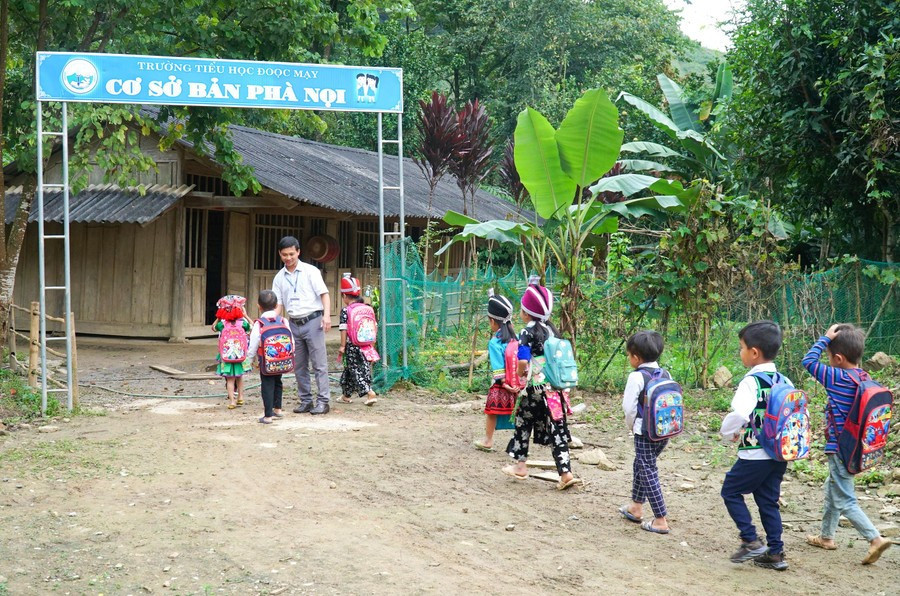
Need practical solutions
Nghe An Department of Education and Training has just announced the first recruitment for the 2025-2026 school year, including 829 positions for preschool, primary, secondary and school staff. During the recruitment process, Nghe An Department of Education and Training also divided the communes and wards into 3 regions.
Region 1 includes wards of the old Vinh city. Region 3 includes communes of 6 mountainous districts: Con Cuong, Tuong Duong, Ky Son, Quy Hop, Quy Chau, Que Phong (old). Region 2 includes the remaining wards and communes (except region 1 and region 3). For regions 1 and 2, the application requirement is that students graduate from a university of education in the right major, with a good grade or higher. Depending on each subject, for region 1 there are also criteria for university entrance scores. Meanwhile, the standard for region 3 is that candidates only need to graduate from a university of education in the right major.
The “lowering of standards” for teacher recruitment in region 3 comes from the fact that for many years, highland schools have lacked teachers, and even though they have quotas for staff, there is still no source of recruitment. According to Mr. Nguyen Quoc Khanh - Deputy Head of the Personnel Organization Department, Nghe An Department of Education and Training, attracting pedagogical students to the highlands requires many policies and commitments that are attractive enough to stabilize the job, and cannot rely solely on salary increases or allowances.
Mr. Nguyen Quoc Khanh said that a feasible solution to attract teachers to difficult areas is to recruit teachers from schools in the plains, favorable areas, with conditions for secondment to work in areas with especially difficult socio-economic conditions for 3-5 years. After the term, they will return to the original recruitment place to work. Or recruit teachers to schools in mountainous areas, difficult to work, but after a certain period of time (3-5 years for men or women), they will be arranged to transfer to lowland schools if teachers have a need.
If the above solution is implemented, it will certainly attract many pedagogical students, including good and excellent ones, to apply and be ready to "do military service". However, the condition for implementing the above policy is the legal regulations on the right to recruit, transfer, assign, and second teachers to which agency to implement. If at this time, the above authorities are implemented by the Department of Education and Training, but then assigned to the commune level to implement, there will be no unity as well as assurance of the regime, rights and commitments when recruiting teachers.
According to the leaders of the Ninh Binh Department of Education and Training, mountainous localities still have an imbalance of teachers between subjects, between levels of education, or between favorable and difficult areas. Special recruitment of students with outstanding achievements will help localities be more proactive in building teams, supplementing a stable and long-term source of young teachers. However, for the policy to come into life, there needs to be specific guidance on direct recruitment criteria, work commitment mechanisms and responsibilities of receiving facilities, avoiding the situation of recruiting and then transferring early. At the same time, localities also need to balance resources to have an appropriate level of support, ensuring that the policy is attractive enough and operates sustainably.
A representative of the Ninh Binh Department of Education and Training said that it is necessary to establish a periodic assessment mechanism based on criteria such as the level of improvement in student quality, the ability to meet the requirements of the new General Education Program or the rate of long-term teachers. When implemented synchronously and with clear monitoring and adjustment methods, the policy will become an important driving force contributing to improving the quality of education in disadvantaged areas.
Source: https://giaoducthoidai.vn/tuyen-dung-dac-cach-sinh-vien-xuat-sac-den-vung-kho-co-hoi-va-thach-thuc-post758529.html








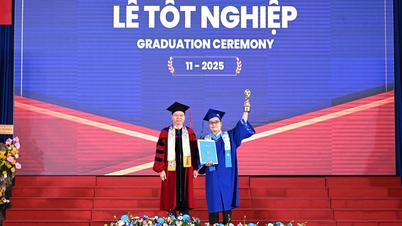

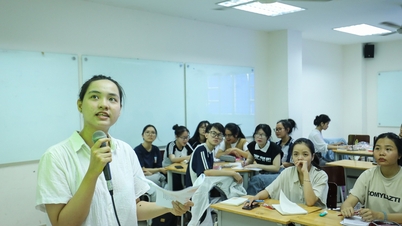

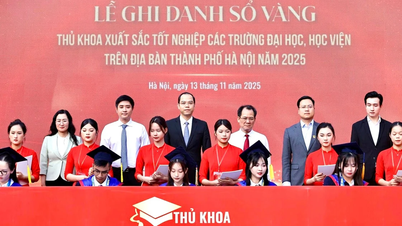

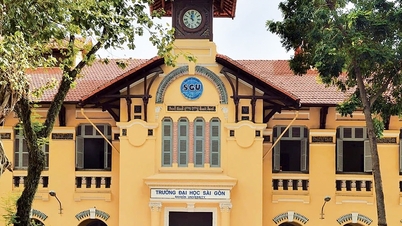

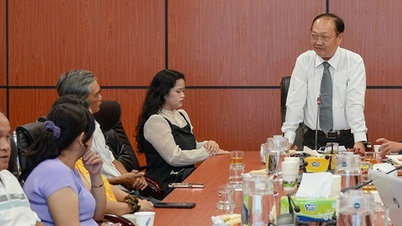
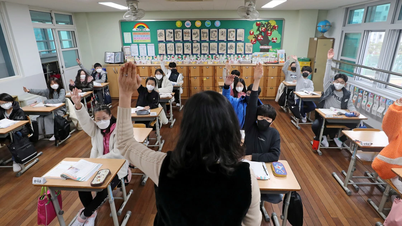
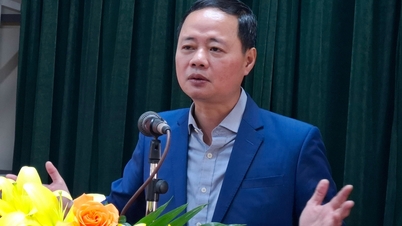



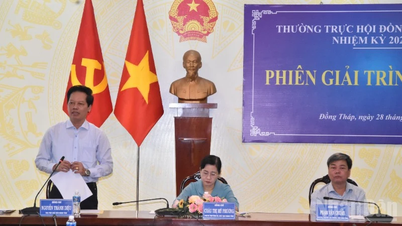

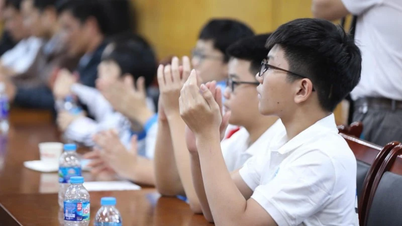






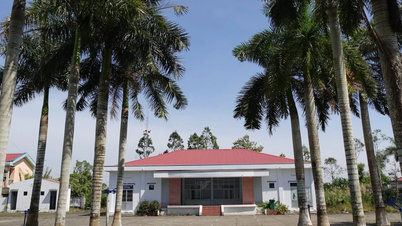


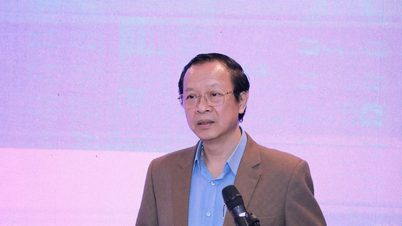
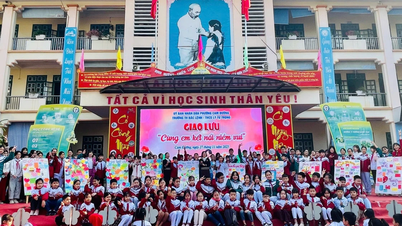
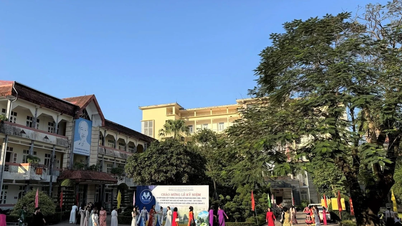



















































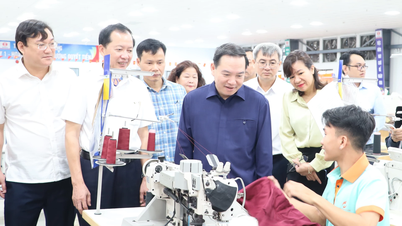


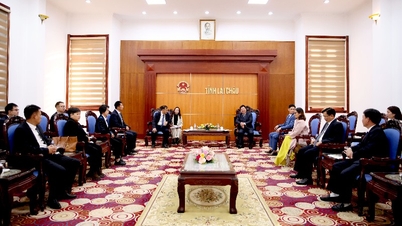

















Comment (0)